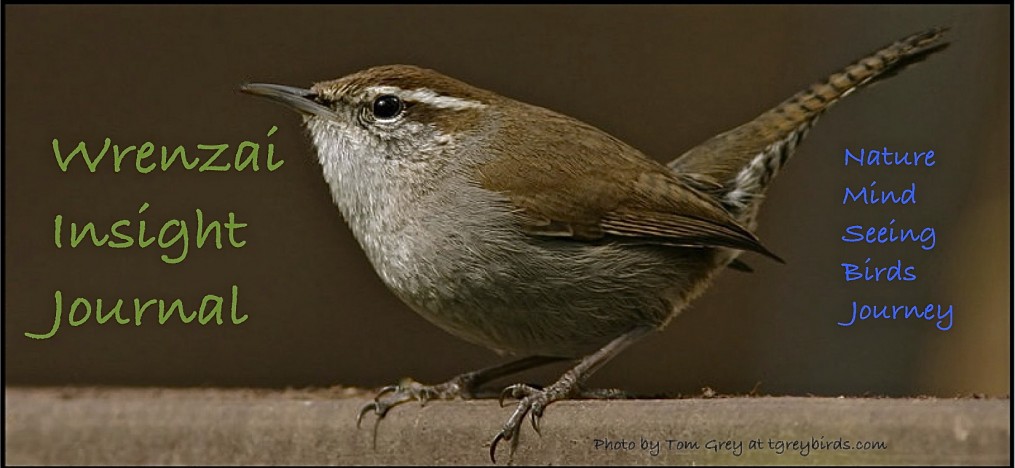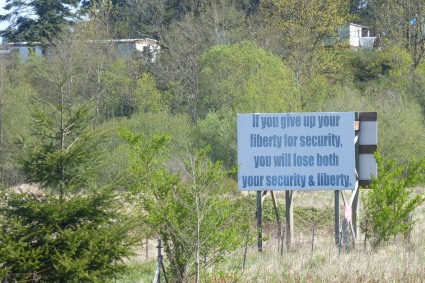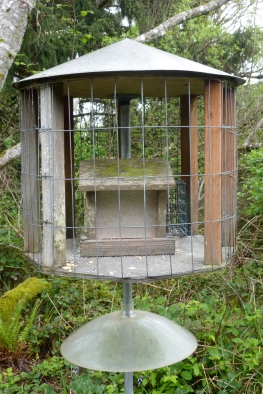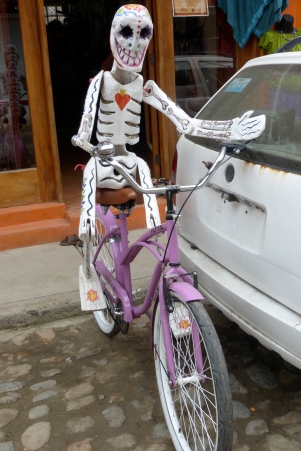Driving from Aberdeen to Olympia here in Washington State, I see a sign in a field beside the highway that reads, “If you give up your liberty for security, you will lose both your security and liberty.” The owner of the field has erected this baseline libertarian view for all to see, read, and contemplate. While I vote democrat, this is a sentiment with which I have to agree. But I’m not concerned with this dichotomy at just the political, digital, and corporeal levels; I’m also curious about how it applies to the heart.
The sign no doubt refers to politics in the United States of America. The supreme example took place when, within minutes after two commercial jets flew into New York City’s Twin Towers, no one in the country but the military could leave the ground for days. Due to the fact that Americans had no idea if the attacks were over, most Americans did not grumble too much about not being able to fly or carry on business as usual. Another, more controversial example is the Patriot Act. The idea here is that, in order to protect us from attack, the government has to monitor or curtail the movements of a few suspicious people, which then enables the government to keep a closer eye on the citizenry at large and suppress dissent in general. Then along comes a “transparency patriot” like Edward Snowden, who revealed recently how the government is collecting innocent law-abiding citizens’ phone calls. It seems that countering security with liberty is an ever-shifting (and shifty) business.
The paradox of freedom and security applies in other realms and at other levels of our existence in this country as well. Corporations are gathering megalithic quantities of personal information in order to invade our lives with incessant hard sells. I find this kind of assault as problematic as the governmental kind. Freedom (privacy, in this case) and security is an issue in cyberspace as much as it is in our airspace. Information about American citizens can easily be viewed, gathered, and used to target our pocketbooks, bank accounts, and credit cards (the question comes to mind whether the government might find reason to access the data that corporations and associations have collected about us). The only way to avoid being so vulnerable is by never accessing the Internet, which means never owning or using a computer, which in this day and age amounts to living in a cave. Privacy is at a premium in a world in which we share our identities, credit card numbers, and purchasing habits. Using computers online requires we set up accounts, use passwords to access them, and then keep these passwords close to our chests like poker cards so no one steals our identity or money. And there are frequent breeches of security in which citizens’ information is compromised, the most recent incident being the so-called Heartbleed bug.
Then there are our physical selves—our bodies. There are government regulations, state laws, religious tenets, and corporate policies that control or seek to control what we can and can’t (or must) do with our bodies. Abortion, women in the work force, death with dignity, same-sex marriage, and drug testing are common examples. Some chauvinist churches require that married women not work outside the house. Various religious sects, political organizations, and cities work to make abortion illegal. Some companies require that all employees submit to drug urine tests. Hospitals keep some brain-dead patients alive against the will of the family while medical bills drive caregivers to bankruptcy.
But how does the concern with liberty and security apply to our emotional, intellectual, and spiritual lives? Is there a corollary? What do we hold hidden deep within our hearts? With what password can we access the soul? What do we too willingly or carelessly share about our selves? Is there a healthy balance of freedom and security in what we reveal about ourselves to our friends, family, and colleagues? Or is the goal to be so free as to have nothing left to get off our chests? How much passion can we get away with in expressing our love, interests, views, and beliefs? What do we risk by expressing our feelings? Are we at an advantage in this competitive world by not revealing our tips and insights? Should we be glib or taciturn, open or closed? Is the ego all about finding the advantage in the game of life, or is it about baring our soft underbelly in order to be loved—or both? And if the ego is all about winning, getting ahead, or being loved, then what role does the superego play? Does the superego seek enlightenment? Does the superego seek to rise above such concerns as security and freedom, a duality that otherwise tears us apart? Or is the battle between freedom and security the very conflict that keeps us alive—that keeps the whole human enterprise up and running? Do we have any idea how much we are the products of our parents’ ways or of society’s expectations? Do we have any sense of how little we’ve shaped how free and secure we are or might want to be?
Such a basic human conflict is inevitably complicated and brings up endless questions, should we be so brave as to pursue them, but more often than not we don’t actually think about this issue as an issue. Instead, we act as circumstance, intuition, and habit lead us to act. We grope along in a kind of darkness when it comes to how free or secure we are or should be. Yet how we approach freedom and security in the political, digital, and physical world might well provide clues as to how to approach freedom and security in our emotional, intellectual, and spiritual lives. We could conclude that there is no freedom without security, but the sign in the field suggests that if we give up our heart’s liberty for security, we could lose both our heart’s security and liberty.






Great contemplation and thought provoking insight on the concept of FREEDOM. And I love the photos you included here. I was wondering how you would come up with photos to support your words and thoughts! Very clever and well done.
Thanks, Fran. There’s a lot of space in the interstices between “concretenesses” to fly about to make interesting connections between words, ideas, and images. Like all that space between atoms….
Again, you touch upon topics that i feel we all should be contemplating. Will we lose all privacy and truly become a global village? Facebook, tweets, blogs, data mining, governments, corporations, unnamed stalkers, potential girlfriends, etc. We give up our privacy at every turn. Are we more secure world because we can find out about anybody. Do we have access to who is watching us. Is “freedom just another word for nothing left to lose” Kris Kristoferson?
The vigilance seems more important than the answers. I enjoy reading your blog.
So true, Rory. For every upside there’s a downside. For every freedom there’s a danger. This we can’t escape. We can only heighten our awareness and make conscious, conscientious choices. But this mean taking the “other” into consideration. Until we do that, most of us are driving blind. Thanks for commenting!
You navigated from the political and social to the personal very nicely. I was reminded of a book I read long ago, that’s still in my library: Secrets: On the Ethics of Concealment and Revelation by Sissela Bok.
One quibble: I would not characterize the highway sign you quote as libertarian. Its contents have been attributed to both Franklin and Jefferson, who would probably resist the label given what libertarians are spouting these days.
So true, Sal. I did research the source of the quote before I started drafting. I could not find the exact wording, but I found similar words by Franklin and Jefferson. Pure democratic, libertarian, and republican principles remain ideals. Each gets bastardized by money and fanaticism…. I’d like to borrow that book you mention, next time I see you.
The danger we face is from those who post such signs in their overgrown, I-5 fields. They hide behind basic Democratic ideas a deep- seated anti-government , the government can do NOTHING right stance. Their hatred (lot’s of -isms apply) does nothing to support our checks and balances system. I say if they want to live in a government-less society, Somalia is only a long flight with a couple of layovers away.
So true, Steve. I often say that a country without a government is like a body without a brain or an id without a super-ego. As in yoga, we need to make the adjustments for maximum strength, flexibility, balance, freedom, and union, a tough but fine act to achieve. — Wrenzai